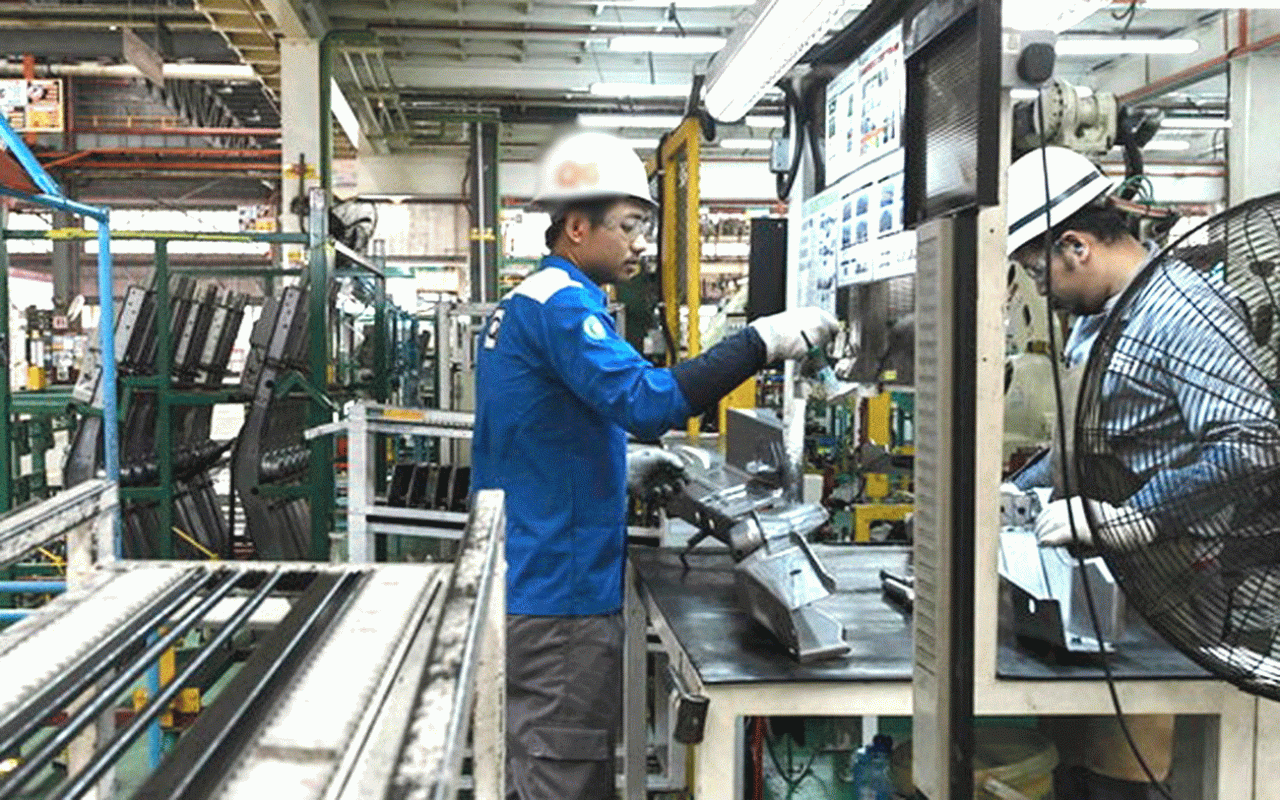
Malaysia’s manufacturing sector showed further signs of improvement, boosted by the reopening of the economy following the flattening of Covid-19 curve. — Bernama photo
KUCHING: Malaysia’s manufacturing sector could record an uneven recovery, given the strong headwinds from the Coronavirus Disease 2019 (Covid-19) outbreak, analysts project in an economic update.
The research arm of Public Investment Bank Bhd (PublicInvest Research) observed that Malaysia’s manufacturing sector showed further signs of improvement, boosted by the reopening of the economy following the flattening of Covid-19 curve.
“Output grew at a record pace as an increasing number of businesses restarted their operations,” PublicInvest Research noted.
“Business confidence jumped to a four-month high, reflecting more upbeat expectations towards market conditions over the coming year.
“Demand conditions were beginning to stabilise with the New Orders Index rising to a six-month high.”
According to PublicInvest Research, overseas demand remained fragile however weighing down total order book volumes.
“On that score, international demand was subdued by Covid-19 and may remain so in the next few months. Staffing levels were stable though some companies resorted to retrenchments as businesses adjust to new production schedules.
The research arm noted that output prices increased for the first time this year, driven by stock shortages, higher transport fees and unfavourable exchange rate movements.”
“There could be an uneven recovery in Malaysia’s manufacturing sector given the strong headwinds of Covid-19.
“Although Malaysia appears close to winning its war against Covid-19 this is not the case for our major trading partners like Singapore, China, US, Eurozone and Japan.
“Weak external demand may continue and could be a drag on the headline index.”
Volatility in PublicInvest’s Manufacturing PMI should therefore be expected.
Affin Hwang Investment Bank Bhd (Affin Hwang Capital) recapped that among the Asean countries, Vietnam (51.1) and Malaysia (51) recorded PMI readings above 50, while Philippines (49.7), Myanmar (48.7), Thailand (43.5), Indonesia (39.1) and Singapore (38.8) remained in the contractionary region.
“However, we believe the recovery in PMI readings in the region could likely continue in the coming months amid gradual reopening of the economies,” the research firm said.
That said, Affin Hwang Capital expected external demand to remain weak amid slower global growth, supply chain disruptions, persistent uncertainty surrounding the pandemic.
As growth in exports contracted sharply in the second quarter of 2020 (2Q20), the research firm expected Malaysia’s real gross domestic product (GDP) growth to decline by between eight to nine per cent year on year (y-o-y) during the quarter.
It noted that GDP numbers will be released on August 12.
“Based on our estimates in the first half of 2020 (1H20), real GDP growth will likely decline by 4.2 per cent y-o-y in 1H20 before improving slightly at a pace of -3 per cent in 2H20, averaging -3.5 per cent in 2020 (4.3 per cent in 2019).
“However, we believe that the reopening of businesses and all essential services under Recovery Movement Control Order (RMCO) will continue to be supportive of the domestic economy, but weaker global growth will remain a drag as both external demand and manufacturing production may still be affected by global supply chain disruptions.”
